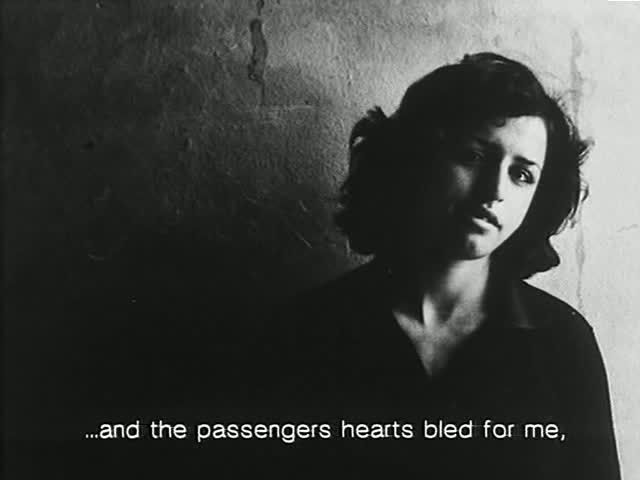Qaleh
Directed by Kamran Shirdel, Iran, 1966-1981 (18mins)
and
Prostitute
Directed by Tony Garnett, UK, 1980 (1hr 34 mins)
Qaleh - The Women's Quarter (1966-1981) shows the life of prostitutes in Tehran's city brothels, an area known as Shahre Now. The film closely follows a number of women and communicates how the burden of social constraints led them to surrender in the face of their common fate. By including photos in the film, a very unique and artistic approach that brings to mind Chris Marker's classic La Jeteé, Shirdel not only tempers the subject's emotional heaviness but also respects the individual's privacy, two pitfalls that often afflict films that deal with themes of this nature. The film does explore the possibility of re-education and development for these women, but in no way does it paint over the hard and brutal reality. As the film closes, a magnificent scene shot in slow motion leaves us with the memory of this ugliness forever imprinted in our minds.

The film was produced on behalf of the Organization of Iranian Women and was immediately banned while shooting was still going on. After the revolution, a portion of the material was recovered, and Shirdel decided to finish the film using photos by the late Kaveh Golestan that were taken more than ten years after the film itself was shot.
Prostitute (UK), 1980
Directed by Tony Garnett
Mastered from original film materials and presented fully uncut for the very first time, Prostitute is Tony Garnett’s groundbreaking and controversial documentary of the lives of a group of Birmingham sex workers.

One of British television's most critically acclaimed figures, Tony Garnett has been responsible for producing some of the UK’s most radical dramas. In the 1960s and 1970s he collaborated with director Ken Loach, beginning with the groundbreaking Up the Junction (1965) and Cathy Come Home (1966). After spending most of the 1980s in America, he returned to work on series and serial drama with a range of credits, including Between the Lines (1992-1994), This Life (1996-1997) and The Cops (1998-2001).
His cinematic directorial debut, Prostitute (1980), which he also wrote and produced, is the story of two women – Sandra (Eleanor Forsythe), an ambitious but naïve Birmingham working girl who moves to London with the hope of securing wealthier patrons, and Louise (Kate Crutchley), her social worker friend, who is fighting to change the antiquated and hypocritical prostitution laws. As both strive to achieve their goals, a cold dose of reality dashes their hopes and the built-in biases against women in society are unmasked. Tony Garnett researched and developed the film over several years, working closely with PROS, the Programme for Reform of the Law on Soliciting, for the decriminalisation of prostitution in Britain.
Recalling the film in 2011, Tony Garnett writes:
I wanted to make a film from the prostitute’s point of view. It would not be sexy, turning the audience into punters. No prostitute would turn out to have a heart of gold or fall in love and marry a kind, millionaire punter. It would be about money, buying and selling, and the stress that particular trade imposes. It would show how class distinctions altered the transactions. I hoped for insights and debate. Often when dealing with a world the public does not know but thinks it knows, it is useful to dispel the prejudice by just carefully revealing its day to day character in a matter-of-fact way. I was not interested in making a genre film, whether thriller, romance or morality tale.
AT
Colorama Cinema
52-56 Lancaster Street
London SE1




No comments:
Post a Comment